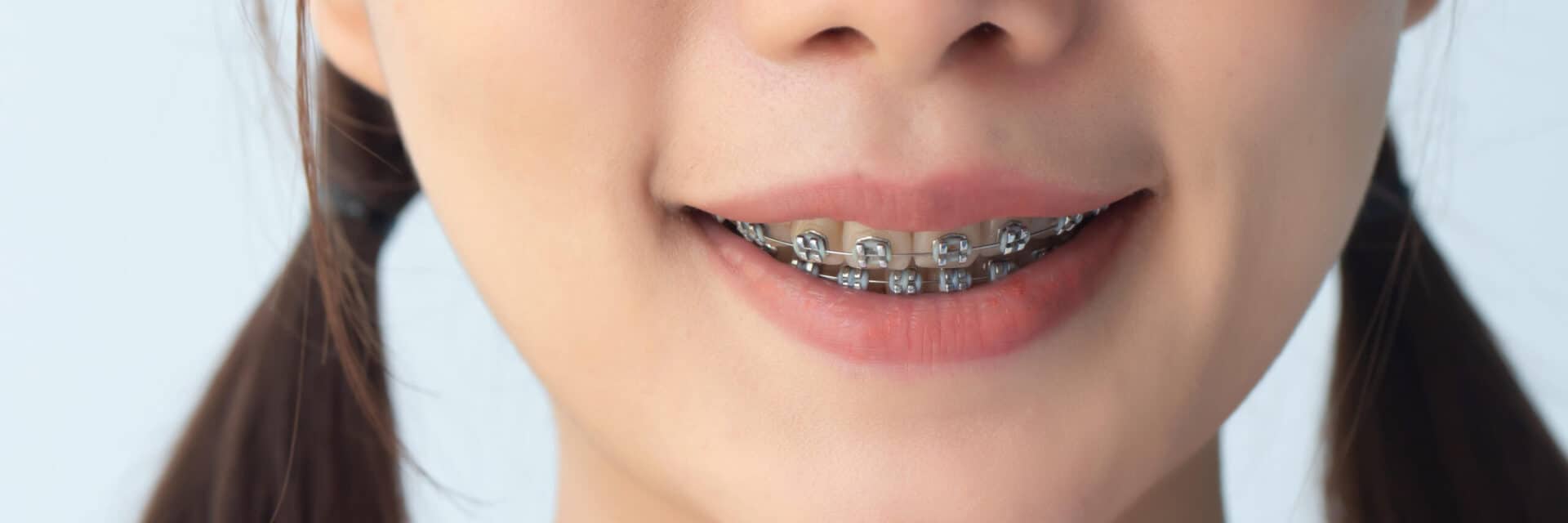We know this situation well. Your child is about to start the new school year, you take them shopping for school supplies, and make sure to schedule their annual dentist appointment while they’re still on vacation. But at your appointment, you receive the news that your child should get braces.
Even though there are more alternatives to traditional braces, there are still lots of people who wear braces. In fact, four million people in the US wear braces. As a parent, it can still be difficult to know if your child needs braces. Here are 6 signs your child should get braces, why braces are still recommended for dental care, and about choosing the best orthodontist.
1. Gaps
Does your child have noticeable gaps between any of their teeth? If your child is young, permanent teeth will fill in the gaps. But if your child already has permanent teeth but still has gaps, it may be time to book an appointment with the orthodontist. The braces will close the tooth gaps, not only improving the look of your child’s smile but will improve their oral health.
Tooth gaps can easily collect plaque, which hardens into a substance called tartar. When tartar is on your teeth and gums, this increases your child’s chance of getting gingivitis and periodontitis. Before gum disease forms, your child may experience pain in the teeth and gums. Tartar and plaque can also cause other mild symptoms, such as bad breath.
2. Crowded Teeth
On the contrary, your child might have too many teeth. When their permanent teeth grow in, there may not be enough room in their mouth to fit all of their teeth. The teeth won’t grow properly, which can make their teeth grow at odd angles. Crowded teeth may also cause other side effects such as difficulty chewing and developing a lisp.
Braces are beneficial to crowded teeth. The metal wires and straps will put pressure on the teeth, adjusting them in the correct position. Your child’s teeth will also appear straighter. The braces can also correct issues that the crowded teeth have caused, such as an overbite and underbite.
3. Lost Baby Teeth Early or Late
The age when your child loses their baby teeth can impact whether or not they will need braces. It’s rare for a child to lose their baby teeth early, but injury or tooth decay can cause the baby teeth to fall out at a young age. When a child loses their baby teeth early, this can cause different dental complications that may require braces.
There’s also a chance your child may lose their baby teeth late. This can cause alignment issues when their permanent teeth grow in.
Your child should lose their baby teeth by ages 6 or 7. If your child lost their baby teeth before or after this, take them to their dentist.
4. Underbite
An underbite is when your child’s bottom teeth are protruding farther than the limit of their upper teeth. This occurs when the bottom part of the jaw grows too much or the top part of the jaw grows too little.
An underbite can cause wear and tear on the front teeth, making these teeth more prone to breakage and chipping. Since your child’s jaw is misaligned, they may struggle with chewing. Plus, if the underbite is noticeable, your child may become self-conscious.
An underbite can range from mild to severe, so it’s important to visit your dentist and discuss different treatment options.
5. Overbite
An overbite is when a child’s front teeth extend farther than their bottom teeth. Hereditary factors and natural jaw shape can cause an overbite, in addition to overcrowding teeth. Overbites range from mild to severe. In severe cases, your child may struggle to close their mouth. This can cause a variety of issues, such as breathing difficulties.
Why are braces recommended for an overbite? The wires in the braces align the jaw, pushing the front teeth back and the bottom teeth forward. Braces will also straighten their teeth, improving their smile. In addition, ceramic braces can correct an overbite.
You can also choose Invisalign for your child’s overbite, but this is recommended for mild to moderate overbites.
6. Mouth Breathing
Do you notice your child is a mouth breather? If so, they may need braces in the future. Constantly breathing from the mouth can cause issues with the shape of their face. This can impact the way their permanent teeth grow; for example, their jaw may become too narrow and there won’t be enough space for their permanent teeth.
Mouth breathing poses other problems to your child’s oral health, such as increased tooth decay. If your child is a mouth breather, it’s integral that you take them to the dentist on a regular basis.
How Long Should My Child Wear Braces?
It’s impossible to give a specific time frame. Your child may have to wear braces any time between one and three years. However, the exact amount of time needed to wear braces depends on the type of condition they have and the severity. When your child has a consultation with the orthodontist, they will create a treatment plan that may include the treatment duration.
Keep in mind that this treatment plan may change. It all depends on how your child’s teeth move — for example, if your child’s teeth are moving slowly, they may have to wear their braces for a longer period of time.
What Age Should My Child Get Braces?
Is your child old enough for braces? This depends. Some orthodontists may recommend braces for a child as young as 6 or 7 and some may not recommend braces until a child is 9.
9 is a good age because your child’s permanent teeth are completely grown. But in severe cases, an orthodontist may recommend some treatment options when your child is younger. For example, an orthodontist may also want to treat some dental concerns, such as overbites and teeth crowding, as early as possible.
Should Your Child Get Braces?
It can be difficult to know if your child should get braces. That’s why your first step is to visit a local orthodontist you can trust. If you’re in Castle Pines, Colorado, and are looking for an orthodontist, take a look at our new patient resources.




